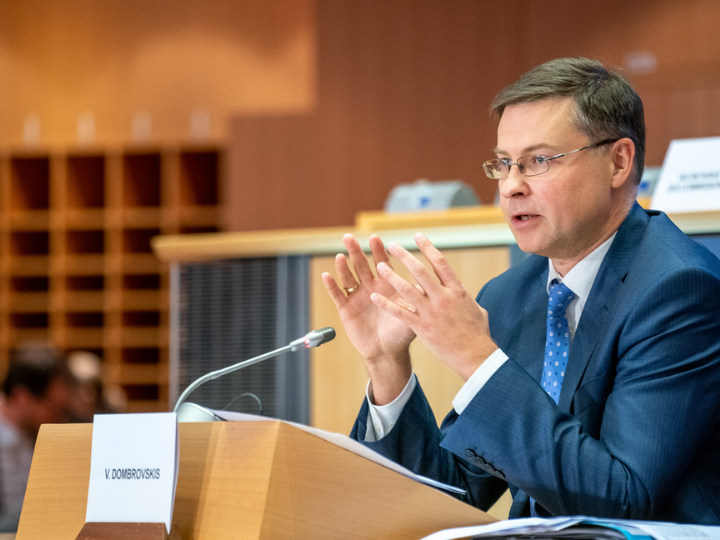by Jorge Valero
Some EU finance ministers are expected to request the European Commission on Friday (16 April) to shorten the two-month evaluation period of the recovery plans in order to speed up the implementation of the long-awaited European stimulus.
The third wave of the COVID-19 continues to spread in Europe in spite of tightening restrictions in various member states and the progress, albeit patchy, made with the vaccine strategy.
As a result, the economic take-off has been pushed back further, even more so as the first transfers of the EU recovery fund will not land in national coffers at least until July, at the earliest.
Against this backdrop, some member states are pressing the European Commission to reduce the evaluation period of their investment and reform plans to unblock the recovery funds. According to the Recovery and Resilience Facility regulation, the Commission has two months to give its verdict on the recovery plans, and the Council an additional month.
But two EU diplomats said that such a long period does not make much sense when the Commission has been discussing the drafts with some governments since October.
“Why, after all this time, does the Commission need two months?” one diplomat wondered.
The same diplomat, who spoke on condition of anonymity, added that some ministers will address this issue with the EU executive on Friday, during the informal videoconference of EU finance ministers.
The Commission has not been very open to considering a shorter period so far, EU and national officials said.
To date, no member state has formally submitted the final version of their investment and reform plans.
Spain, Greece, Portugal, and France had planned to send their drafts in March. But the capitals and the Commission are finding it more difficult than expected to iron out some of the final issues, including the milestones to unlock the funds or the auditing of the costs.
These four countries are expected to be the first to send over their proposals, some as early as next week, officials said, although some sources added that Paris has lost some ground.
EU countries have until the end of April to send their plans, although EU and national officials noted that this is a “soft” deadline, as the regulation states that member states should do it “as a rule” by 30 April.
The Netherlands and Finland have already said that they will not complete the process this month.
The setting up of the EU’s unprecedented stimulus, however, may be further delayed by the ratification of the fund itself.
To date, a total of 17 member states have approved the EU’s Own Resources decision, which allows the Commission to borrow the €800 billion to finance the fund.
EU and national officials are confident that the ratification could be completed in the 10 remaining countries by the end of July.
But uncertainty is high about the approval in Germany and Poland. Some fear that the German Constitutional Court’s decision could come only after the German elections in September, although officials in Brussels are more inclined towards a resolution in July.
In Poland, the green light is threatening the stability of the government because of the opposition of the ruling PiS party’s junior coalition partner.
*first published in: www.euractiv.com




 By: N. Peter Kramer
By: N. Peter Kramer
